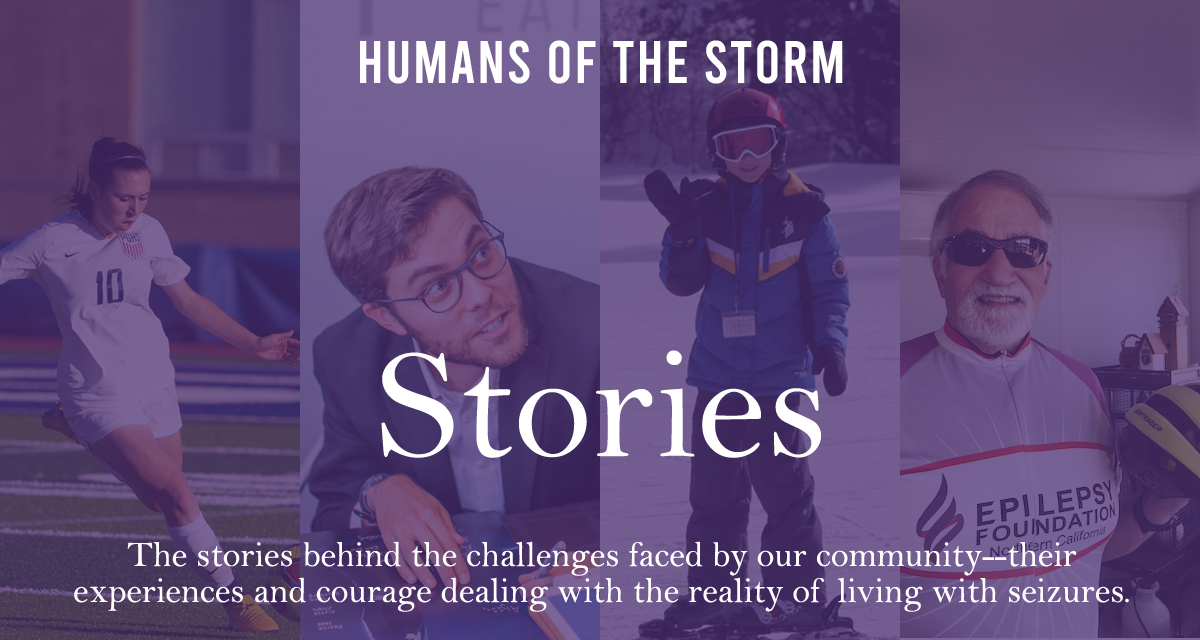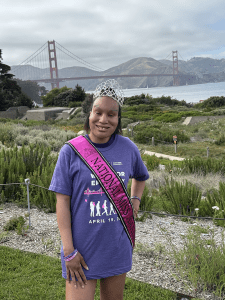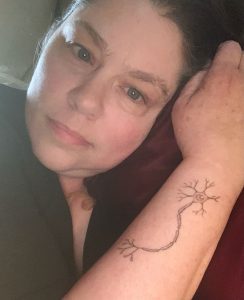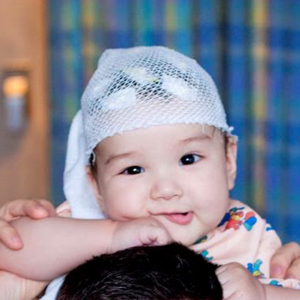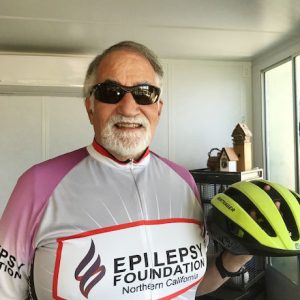My name is Saida Mahoney, I am 28 years old, and I live in California. I was born with an extremely rare genetic disease called Partial Trisomy 8q Duplication Syndrome, or Partial Trisomy 8q Syndrome for short. This genetic disease affects me in all aspects of life, having a huge impact on me neurologically. I have navigated life battling this condition with strength and determination. As a result of my disease, I have experienced seizures. Epilepsy wasn’t a condition widely discussed in the IDD community when I was growing up. I have had focal seizures, grand mal seizures, idiopathic seizures, Focal Aware Seizures and absence seizures. As an adult, I still deal with my Focal Aware Seizures and my Absence Seizures, but I haven’t had any serious seizures recently. I am incredibly thankful for my medical team, including my wonderful neurologist and neurogenetics doctor. I’m also grateful for the support from my primary care doctors. I am using my voice to raise awareness for those living with epilepsy due to rare diseases. I also strive to educate others…
For my 55th birthday I got a tattoo, my first. It is a neuron. I’ve been contemplating this for a long time. In 2018 I got a silver neuron pendant necklace and wrote this: When I saw this silver neuron, it was love at first sight. I’m fascinated with the ritual/spiritual aspect of tattoos, but not drawn to take this step myself. It is moving to see how some folks choose to decorate themselves with images relating to their health issues. Purple epilepsy ribbons, whimsical zebras, unicorns, brains, chemical structures of life saving medications, medical alert bracelets, EEG/EKG patterns… A way of drawing in, holding close and loving our maladies. Creatively owning these challenges and thus transforming. A few years ago, around the 30th anniversary of my first seizure, I realized my thoughts on tattoos had evolved and I did want one. Here is what I wrote in my blog post, “The Anniversary of The Dead Punk Bride:” As birthdays honor living and surviving another year, I am ready to celebrate 30 years of surviving and thriving with…
Our son was born full-term with no complications. He was very healthy and developed on track during his early months. One evening, he dropped his head abruptly about 4 times, crying. Then, he burped. Maybe it was just gas. But the next evening, it happened again…and then a third night, around the same time every night. Something didn’t feel right. After some online research, we found Infantile Spasms (IS)–categorized as a “catastrophic” childhood epilepsy with drastic consequences (30% fatality rate and 90% significant developmental delays). But what were the chances he would have that? The next morning, we managed to get a same-day neurologist appointment due to a cancellation. The check-up yielded very little, and the doctor was just sending us on our way, telling us that we shouldn’t worry too much, when our son went into his first ever seizure cluster. We were promptly admitted to a hospital. What started as a 30-minute appointment to relieve our greatest fears turned into a week-long hospital stay that confirmed it instead. His EEG showed hypsarrhythmia. Our 5 month…
Since I was diagnosed with epilepsy at age 5, I’ve never experienced the range of emotions of shock, rage, fear, sadness that others have upon being diagnosed. It’s always just been part of life. My seizures were generally focal aware (simple partial), but progressed to being focal impaired awareness (complex partial). As a kid, I was lucky to have a mother who cared about making sure I had medication that worked, but she accepted what the doctor told her at face value and didn’t ask too many questions. Mom never hovered, but always encouraged me to try new challenges. I grew up trying to find the right combination of actions that contained my seizures and let me live a good life: identify my triggers, take my medication, recognize my limitations and try not to be offended by those too ignorant and not willing to learn about epilepsy. If I had break through seizures, my neurologist changed my medications, and I didn’t ask enough questions or push to pursue treatment that could completely control them. I found ways…
Share your experience:
- Tell us a story, suggested length under 400 words (but not a strict limit).
- Any particular story or moment in your life, related to epilepsy, that taught you an important lesson based in hope, fulfillment, or living meaningfully.


